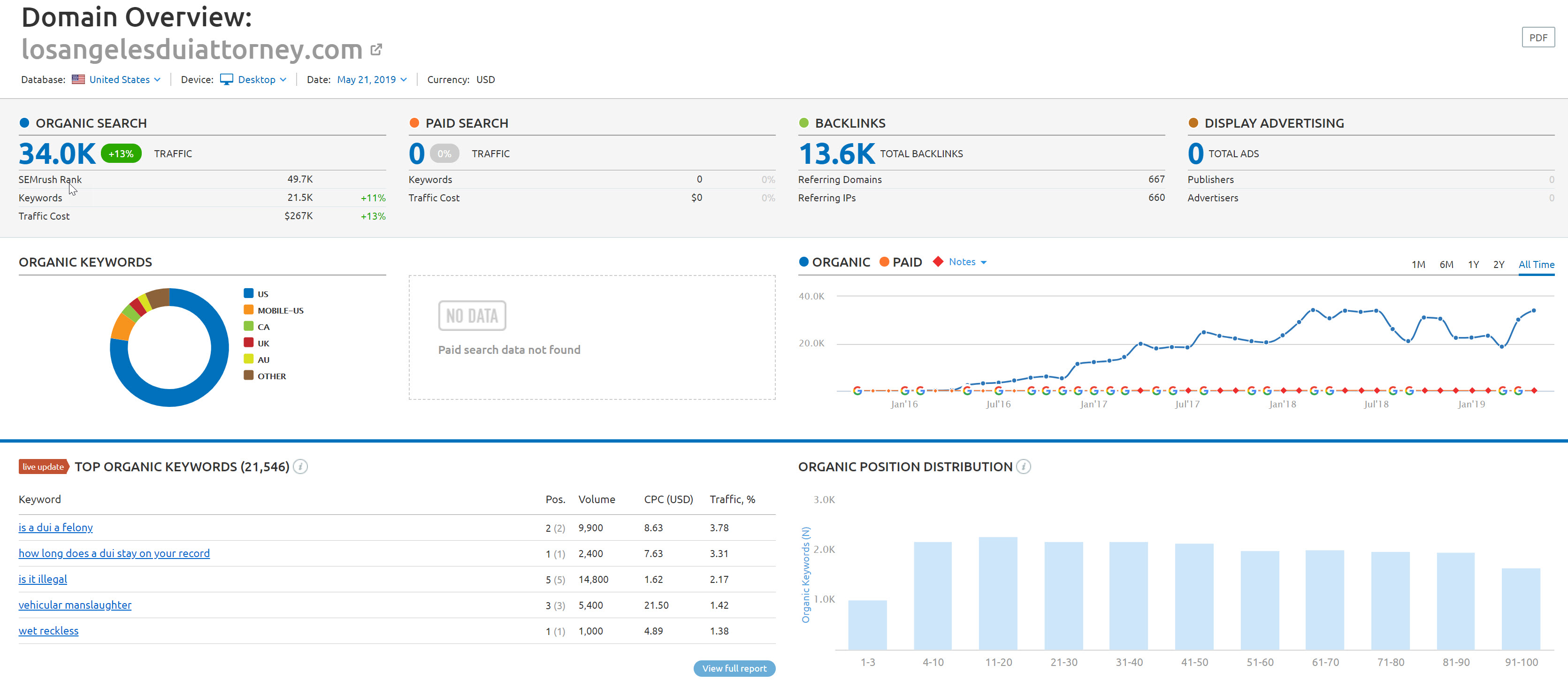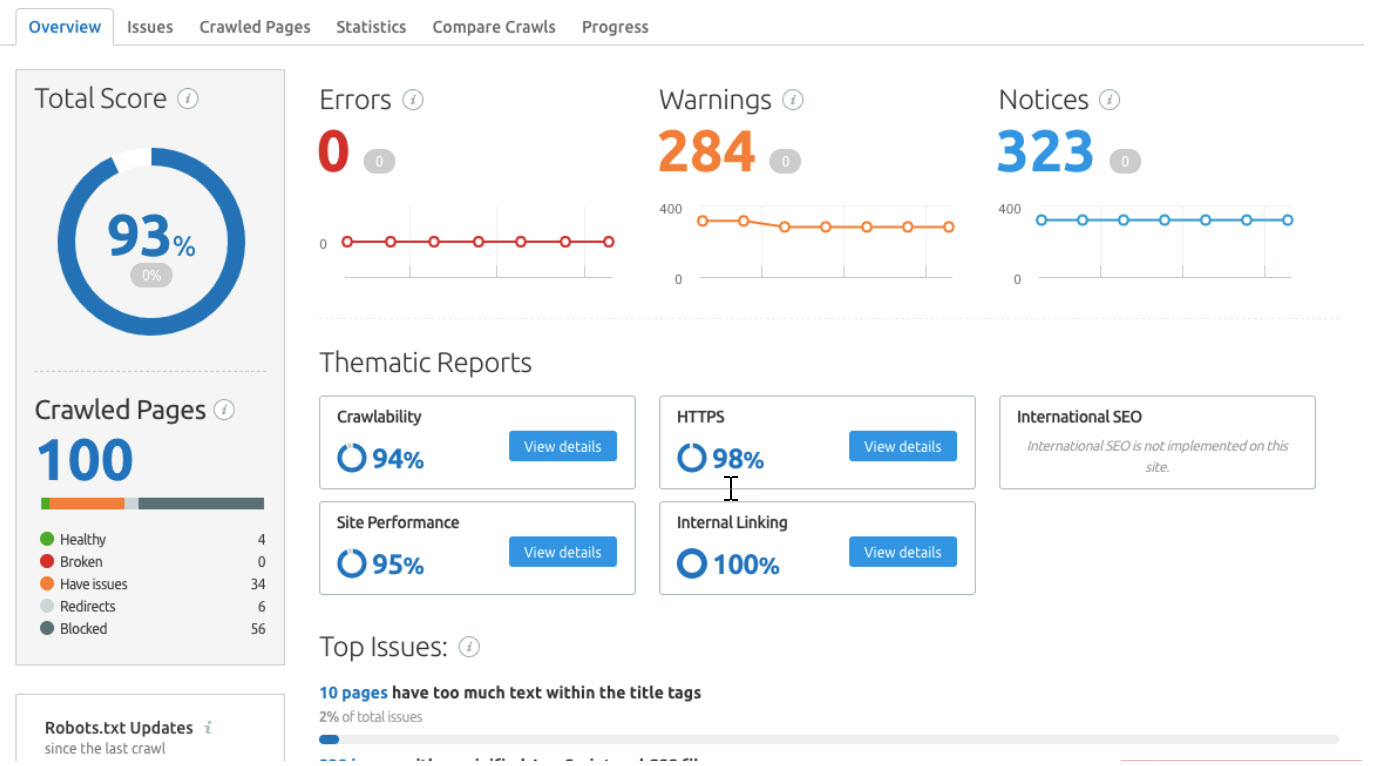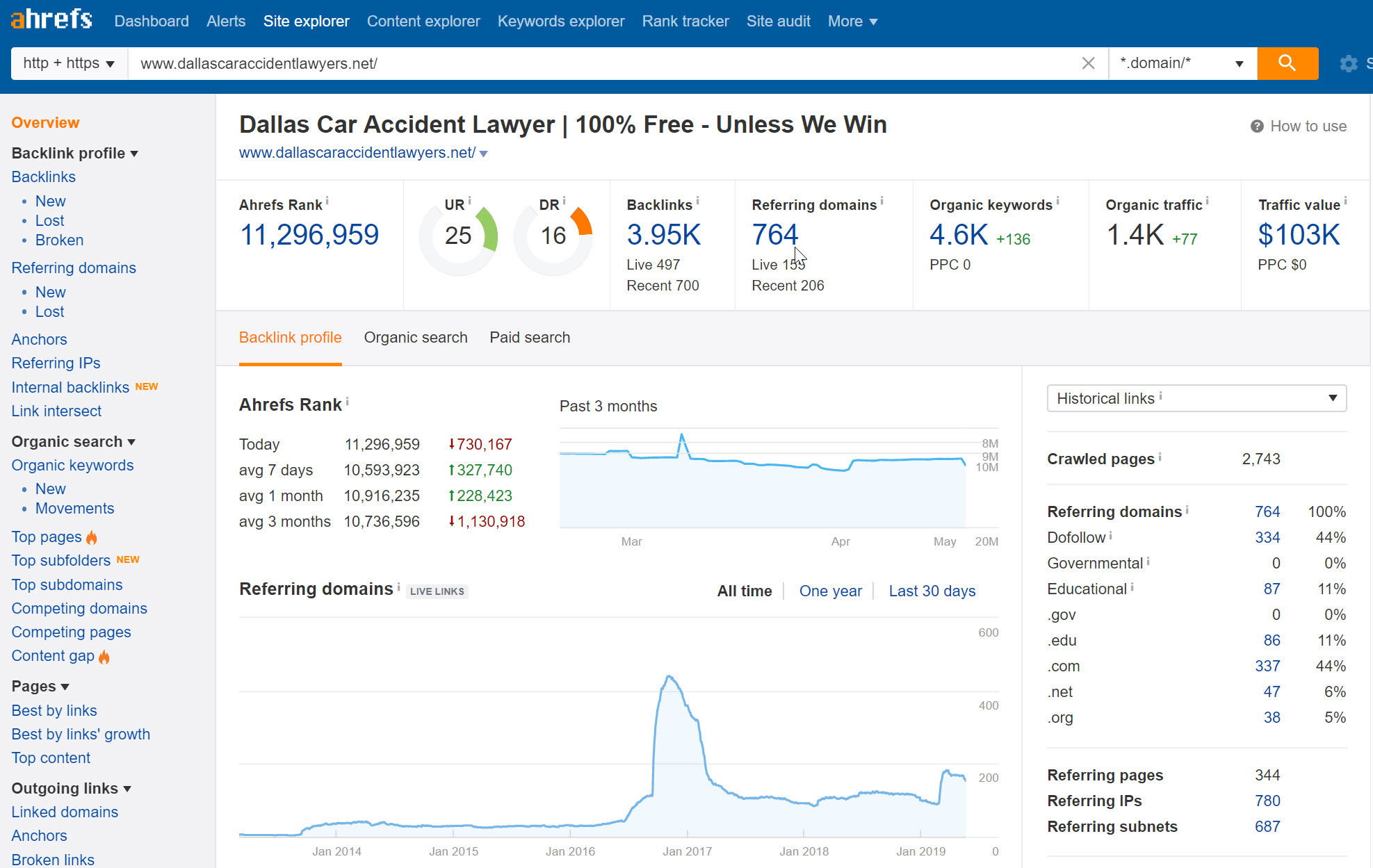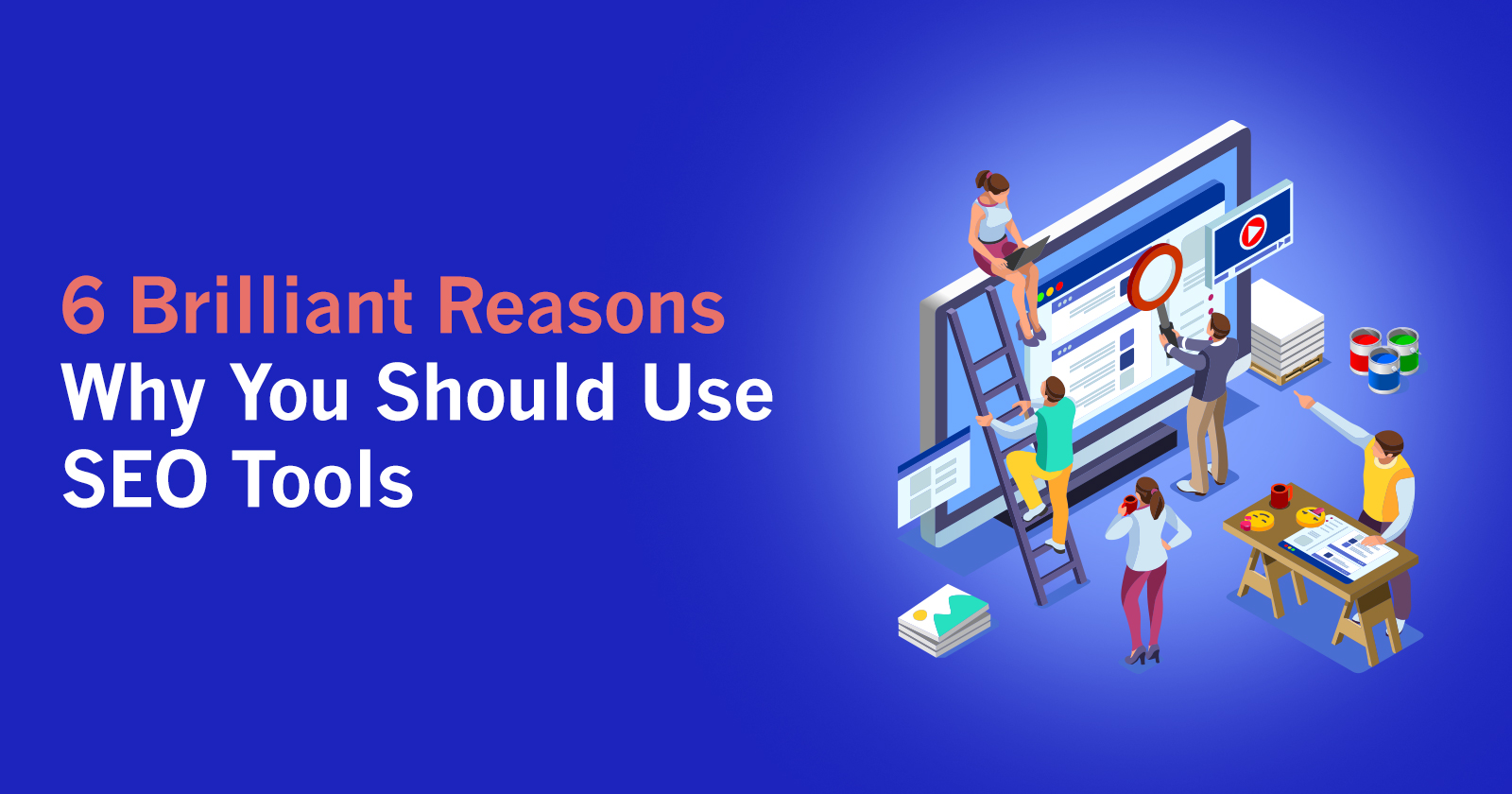The idea that SEO tools are useful for SEO isn’t anything groundbreaking. Most marketers know that knowledge is power and that one’s SEO knowledge is only as strong as the data it’s built on.
Having access to accurate, reliable, easy-to-use SEO tools will only make your SEO strategy stronger. You’ll gain invaluable insights into not only how your own site is performing, but also what your competitors are doing in their SEO efforts.
So let’s leapfrog the basics and get into the more brilliant reasons why you should be using SEO tools.
1. Dissect Competitor SEO Strategy

In a world full of shady marketing and SEO tactics, it can be easy to get pulled to the Dark Side. Fortunately, you can scratch that itch by spying on the competition without crossing any ethical lines.
Many SEO tools, like SEMrush or Raven Tools allow you to dig into your competition’s SEO strategy.
Not only can you see their traffic numbers and rankings, but identify where their backlinks are coming from and how their content is performing across platforms.
Backlink Profile
One of the sneakiest ways to spy on your competitors is to use SEO tools to see their backlink profile. Here, you can see what websites their backlinks are coming from, the authority of these sites, the anchor text, and much more.
Then, you can lay out a game plan for reaching out to those same sites to generate links to your own website. No need to scour the web for industry domains – you can generate a list of opportunities in a matter of seconds.
Keyword Opportunities
Generating a list of keyword opportunities can get more difficult the longer you are in the SEO game. You may have hit a wall and aren’t sure what pieces of content to build out next.
With SEO tools, you can see which new and existing keywords your competitors are ranking for. You can then add these terms to your own list, use the tools to identify related keywords, and even consider expanding to new markets.
SEO tools like SEMrush are capable of generating thousands of keyword ideas at once. Never be at a loss for blog post ideas or new web pages ever again.
2. Save Time and Money on Manual SEO Audits

Comprehensive SEO audits deliver a wealth of knowledge when it comes to identifying website issues. Unfortunately, in-depth audits often time loads of time and money to generate by hand.
SEO tools can cut this time and cost in half while delivering the same (or better) quality of results.
Screaming Frog is a fantastic, free crawling tool that identifies loads of potential issues with your site, such as:
- Orphaned pages.
- Missing page titles.
- Missing meta descriptions.
- Broken links.
- Poor page depth.
- Page server errors.
- And more.
Other tools, like SEMrush and Majestic, automate this process completely, pulling a range of information into an easy-to-read report. You can generate these reports for yourself or your clients for as little as $100 per month.
These reports are a roadmap for what needs to be fixed on the website – from on-page SEO to content to links to load speed. Working from an SEO audit is the surest way to build a rock-solid SEO foundation for your site.
3. Find High-Converting Keywords for Content & Content Marketing
Finding the right keywords for your website is easier said than done. It’s not enough to simply identify industry terms that have decent search volume and low competition. Many other factors come into play.
For one, the intent behind the search terms users are searching for matters more than ever.
Are users looking:
- For free information?
- To solve a problem?
- To buy a product?
You will need to answer these questions.
Find Low Hanging Fruit & Keyword Variations
SEO tools help you identify keywords that you might have never thought of before. They will generate related keywords and variations that can be used in different types of content.
One way to find these is through competitor analysis. Another way is to see which terms your site is already ranking for, what position you’re ranking at, and which terms could use a boost.
Use SEO tools to find keywords that:
- Your site is already ranking for but where some added optimization could make a huge difference.
- Your site is ranking for but you don’t want to rank for, so you can move these from your strategy.
- Keywords you are performing well on and that present variations that are worth targeting.
This will inform you of whether existing content needs to be optimized or if new content needs to be added.
High-Converting Keywords
Keywords that have a buyer’s intent behind them are worth targeting, as they tend to have the highest conversion rate.
Even if you don’t aim to sell a product or service right out the gate, you can still use content to generate leads.
Target conversion-happy keywords and add content upgrades to your content to generate leads.
SEO tools can also help you identify how your competitors are conducting their content marketing.
Simply look at their highest ranking posts and/or posts with the most backlinks and see whether they are using content upgrades themselves.
SEO tools allow you to go beyond your own imagination and use the data to fuel a holistic SEO strategy.
4. Track SEO Progress & KPIs

Many website owners look at their rankings as the primary measure of their SEO success. But there are many other metrics that are worth considering – primarily, organic traffic and conversions.
These can be difficult to calculate on your own. Fortunately, SEO tools make it super clear when your SEO efforts are paying off.
The key performance indicators (KPIs) you measure will depend on your goals and business model. Some of these may include:
- Keyword rankings
- Domain authority
- Number of backlinks
- Traffic
- Form fills
- Sales
- Shares
- Clicks
- Social media comments
It’s worth measuring your progress across multiple metrics and platforms to ensure that not only are you getting more traffic but that that traffic is converting.
With tools like Raven Tools, you can even track for individual keywords and monitor backlinks you are trying to acquire. You can generate reports that compare your progress period-over-period and against your competitors.
Always know if your SEO efforts are paying off. Use SEO tools to track what matters most for your website.
5. Visualize & Conceptualize Data
Believe it or not, not every SEO pro is a numbers person.
Fortunately, there are plenty of SEO tools to help you make sense of the data through data visualization.
What Is Data Visualization?
Data visualization is a way of presenting data as a graph or chart. Rather than having to decipher the meaning of numbers yourself, data visualization tools conceptualize and analyze the numbers in a way that makes sense.
This is extremely helpful if you are mapping your SEO progress over time, looking at user demographics, or are analyzing the success of your marketing campaigns.
Data Visualization with SEO Tools
Many SEO tools will generate graphical reports that allow you to see and analyze data at a glance. These can be particularly helpful for when it comes time to explaining complicated metrics to clients.
Tools like TapClicks provide robust marketing data virtualization tools that you can use to inform your SEO strategy and communicate that strategy to your clients.
6. Communicate Clear ROI to Clients
Piggybacking off of the last point, SEO tools also make it easier to showcase results to your clients.
If you are a marketer or SEO specialist, your clients want to see not only an increase in traffic but also in sales. SEO tools make it super evident what’s working and what isn’t.
The reporting options from SEMrush allow you to generate custom reports to send to your clients. Showcase KPIs, highlight the work you have done, and even add a summary of what the data means.
If you are able to articulate how many leads or how much revenue you are generating for a client as a result of their SEO investment, they are more likely to stick with you for the long haul.
It also makes it easier to position a value add or upsell to help take it to that next level.
Conclusion
SEO tools aren’t only useful for tracking your rankings or conducting keyword research.
You can gain valuable insights about your competition, how your SEO efforts are paying off, and whether you are generating a solid ROI for your clients.
With a combination of tools, you’ll be able to build your SEO strategy from the foundation up.
Know of other brilliant ways to use SEO tools?
More Resources:
- 6 Ways SEO Tools Can Help You Run Your Business
- The Top 15 Free SEO Tools You Should Be Using
- A Guide to Essential SEO Tools for Agencies
Image Credits
Featured Image: Shutterstock, modified by author, May 2019
All screenshots taken by author, May 2019





![AI Overviews: We Reverse-Engineered Them So You Don't Have To [+ What You Need To Do Next]](https://www.searchenginejournal.com/wp-content/uploads/2025/04/sidebar1x-455.png)